Probability theory is an interesting area of statistics concerned with the odds or chances of an event happening in a trial, eg getting a six when a dice is thrown or drawing an ace of hearts from a pack of cards To work out odds, we also need to have an understanding of permutations and combinations The math isn't terribly complicated, so read on and you might beIf the odds are tiny (one to a million), the probability is tiny, almost zero How to convert odds to probability and odds to a probability To convert from a probability to odds, divide the probability by one minus that probability So if the probability is 10% or 010 , then the odds are 01/09 or '1 to 9' or 0111Conversely, if odds are very small (1/1000), probability will also be very small, close to 0 Probability/Odds Conversion Converting probabilities into odds, we simply divide the probability by 1 less the probability, eg, if the probability is 25% (025), the odds are 025/075, which can also be expressed as 1 to 3 or 1/3 or 0333 Odds
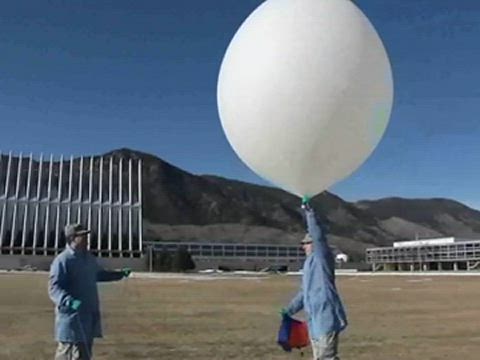
Against All Odds Inside Statistics Unit 18 Introduction To Probability Alexander Street A Proquest Company
Odds vs probability statistics
Odds vs probability statistics-The Ask Dr Math forum has several entries on odds versus probability Summarizing, one way to conceptualize (nontechnically) the probability of an event is the number of ways that an event can occur divided by the total number of possible outcomes The probability of heads in a fair coin flip is 1/2 (50 percent) The probability of drawing a red card from a standard deck ofOdds vs Probability There is a confusion between the concepts of odds and probability, and often times, they are used incorrectly, most typically when the people interchanging probability by odds Odds are a numerical expression, presented usually as a pair of numbers, used in both gambling and statistics In statistics, the odds for some event reflect the likelihood that the




Inverse Probability Weighted Estimation Of The Marginal Odds Ratio Correspondence Regarding The Performance Of Different Propensity Score Methods For Estimating Marginal Odds Ratios By P Austin Statictics In Medicine 07 26 3078 3094
Odds represent the probability of an event occurring divided by the probability of an event not occurring Although related, probability and odds are not the same Probability values can only range from 0 to 1 (0% to 100%), whereas odds can take on any value An OR value of 1 indicates no effect on the odds from the exposure to the outcome;How to find probability and odds and the difference between the two We also discuss experimental probablility, theoretical probability, odds in favor, andShare 'Odds vs Probability vs Chance' Data Points There are a number of different terms used for probability in statistics Each has a distinct (and usually precise) meaning This article examines some of these terms and shows examples Using the right terms can make your own data stories more understandable If you are confused about the difference between probability
On the basis of these outcomes, we can calculate the probability the Quakers win and the odds in favor of their winning There was a total of three wins out of five, so the probability of winning this year is 3/5 = 06 = 60% Expressed in terms of odds, we have that there were three wins for the Quakers and two losses, so the odds in favor of them winning are 32Practice Problem You've entered your name into a drawing to win one of 25 prizes ThereMath video about probability and odds and how to switch between the two Also Shaq Made for students at Junction City High School in KansasUsed Smartboard
Probability vs Odds Real life is full of incidents with uncertainty The terms probability and odds measure one's belief in the occurrence of a future event It may confuse since both 'Odds' and 'probability' are related to the potential that event occurs However, there is a difference Probability is a broader mathematical concept However odds is another method forProbability = odds/1 odds To go in the other direction from odds to probability Divide the odds by 1 odds In this example, (1/4) / (11/4) = (1/4) / (5/4) = 1/5, the probability;Odds % Example Win % 330to1 030% JJ v 77 80% v % 2to1 045% 55 v AQ 55% v 45% 110to1 090% 55 v AQs 50% v 50% to1 121% JJ v 75 85% v 15% to1 121% JJ v 75s 80% v % 73to1 136% 99 v K8 70% v 30% 55to1 181% v 65% v 35% 55to1 181% QQ v Q9 90% v 10% 43to1 226% KT v 74 65% v 35% 33to1 302% High card, low card vs Two middle




Formula Software For Statistics Mathematics Probability




How To Calculate Odds 11 Steps With Pictures Wikihow
Odds are the probability of success (80% chance of rain) divided by the probability of failure (% chance of norain) = 08/02 = 4, or 4 to 1 logistic regression statistics Yury Zablotski Data Scientist at LMU Munich, Faculty of Veterinary Medicine Passion for applying Biostatistics and Machine Learning to Life Science Data Related Mixed Effects Models 4Math vs Probability vs Statistics Ask Question Asked 8 years, 8 months ago Active 7 years, 10 months ago Viewed 6k times 8 5 $\begingroup$ For a certain job interview, I gave myself a 6 in SQL and 8 in Statistics I love math and probability but I always found significance testing and confidence intervals rather dry What is the difference between math, probability and statisticsDifference Between Odds and Probability Odds vs Probability Probability is a mathematical assumption of chance that can be calculated using an equation The equation measures the chances for an event to occur against the total number of chances that occurrence may produce That is (Chances for)(Total Chances) Odds, on the other hand, are a measure of




R Calculate And Interpret Odds Ratio In Logistic Regression Stack Overflow




Odds Ratio Wikipedia
American odds are sometimes called moneyline odds and are accompanied by a plus () or minus () sign, with the plus sign assigned to the lower probability event with the higher payoutProbability statistics Share Cite Follow edited May 30 '14 at 358 Cookie 12 May 30 '14 at 349 $\begingroup$ @tpb261 41 is given as the odds, not probability $\endgroup$ – M Vinay May 30 '14 at 508 $\begingroup$ Ok, I understood the OP differently But Bayes' rule is for probabilities not odds For odds, they first have to be converted to probabilities $\endgroup$ –The odds are 1626 and probability is 016% If you're playing poker long enough you will somewhat regularly encounter the aces vs kings scenario at a table A formula to estimate the probability for this to happen at a 9 player table is This formula slightly underestimates the actual probability which is a little bit higher Odds The relationship between x and probability is not very intuitive




Pdf Fallacy Of Using Odds Ratio As A Measure Of Association In Prospective Studies
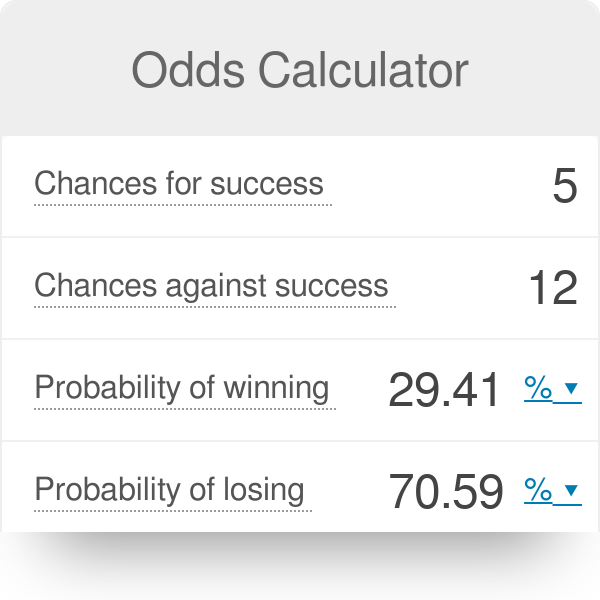



Odds Calculator
Probability and odds measure the same thing the likelihood or propensity of a specific outcome People use the terms odds and probability interchangeably in casual usage, but that is unfortunate It just creates confusion because they are not equivalent They measure the same thing on different scales Imagine how confusing it would be if people used degrees CelsiusOf OR values less than 1 indicate that lower oddsOdds vs Probability When you're talking about the likelihood of something happening, it's easy to confuse odds and probability People define the odds as the probability that something happens divided by the probability that it doesn't happen Knowing the odds of an event happening is an excellent way to check the outcome you want If you only pay attention to




Probability Vs Odds What S The Difference Learn It And By Z Ai Towards Data Science
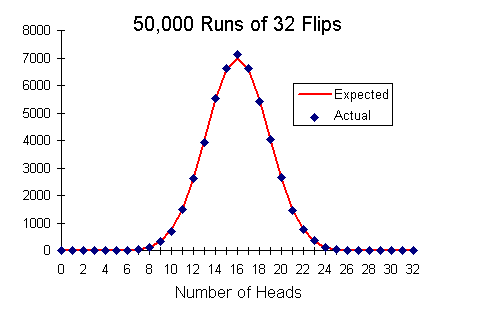



Introduction To Probability And Statistics
"Odds" refers to the probability of occurrence of an event/probability of the event not occurring At first glance, though these two concepts seem similar and interchangeable, there are important differences that dictate where the use of either of these is appropriate Let us look at the hypothetical example of a randomized trial comparing endoscopic sclerotherapy (n = 65) versusOdds can be expressed as a ratio of the probability an event will happen divided by the probability an event won't happen Odds in favor of A = A / (1 – A), usually simplified to lowest terms, For instance, if the probability of an event occurring is 075, then the odds for it happening are 075/025 = 3/1 = 3 to 1 for, while the probability that it doesn't occur is 1 to 3 againstProbability or Odds Probability Probability means the risk of an event happening divided by the total number of people at risk of having that event I will use the example in a recent JAMA article In a deck of 52 cards, there are 13 spades So, the risk (or probability) of drawing a card randomly from the deck and getting spades is 13/52 = 025 = 25% The numerator is the




Probability Is Not Likelihood Find Out Why Youtube




What And Why Of Log Odds What Are Log Odds And Why Are They By Piyush Agarwal Towards Data Science
For example, in statistics, odds represent the likelihood that an event will occur It is important to note, however, that odds to not directly represent probability of an event occurring, but rather the ratio of events to nonevents in total Odds vs Probability A good way to understand the difference between odds and probability is to imagine rolling a die and hoping to land on a twoOdds are just a way of stating a probability That's just a mathematical way of looking at how likely it is that something is going to happen All probabilities are ratios between eventsThe Ask Dr Math forum has several entries on odds versus probability Summarizing, one way to conceptualize (nontechnically) the probability of an event is the number of ways that an eventWhich means that probability and odds do not mean the same thing (although we can convert from one to the other) Without going into too much detail, probability is a number between 0 and 1 that tells you the fractional likelihood that something will happen So a probability of 0 means there's literally no chance of that thing happening, a probability of 05 means there's
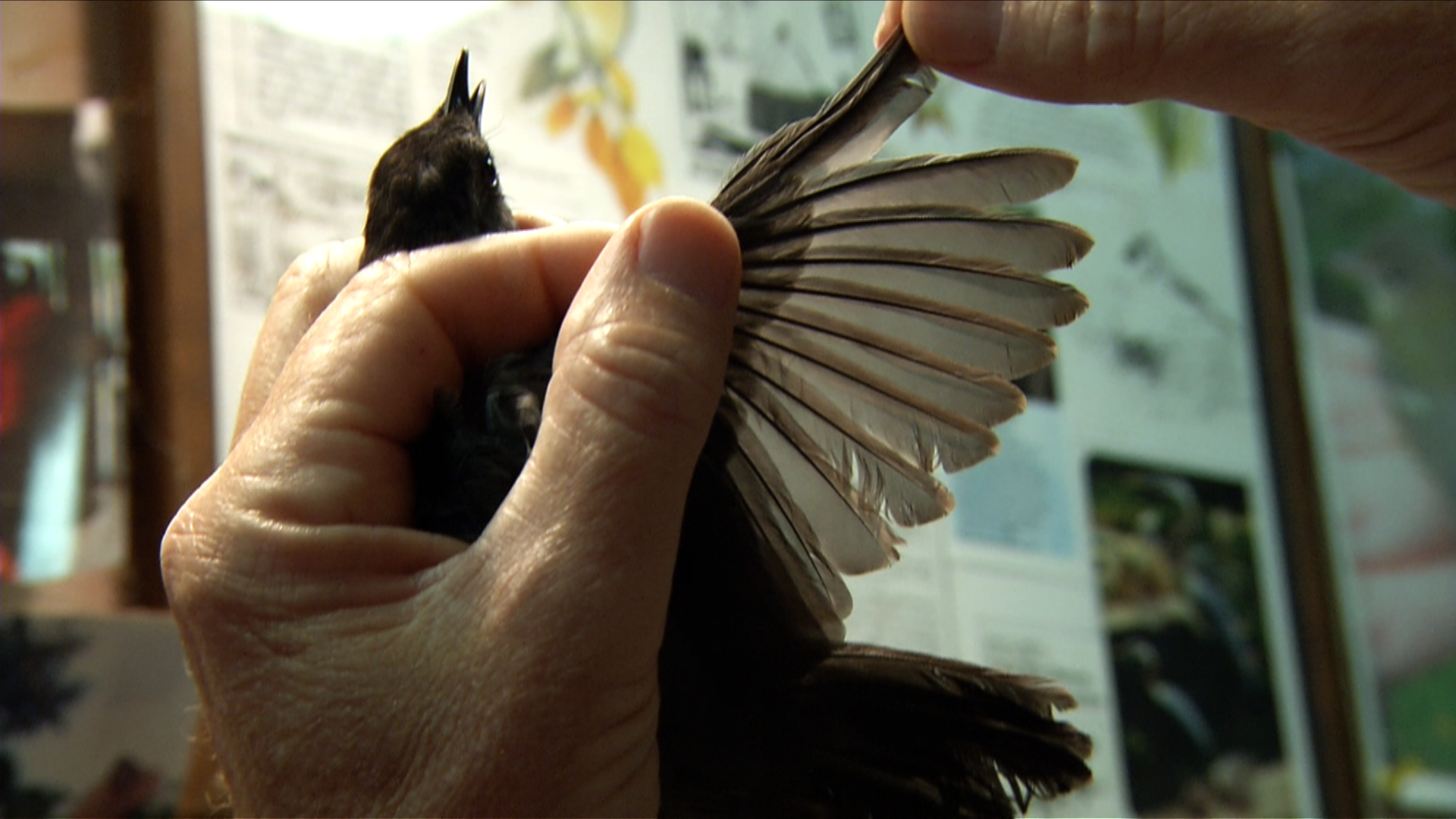



Against All Odds Inside Statistics Annenberg Learner
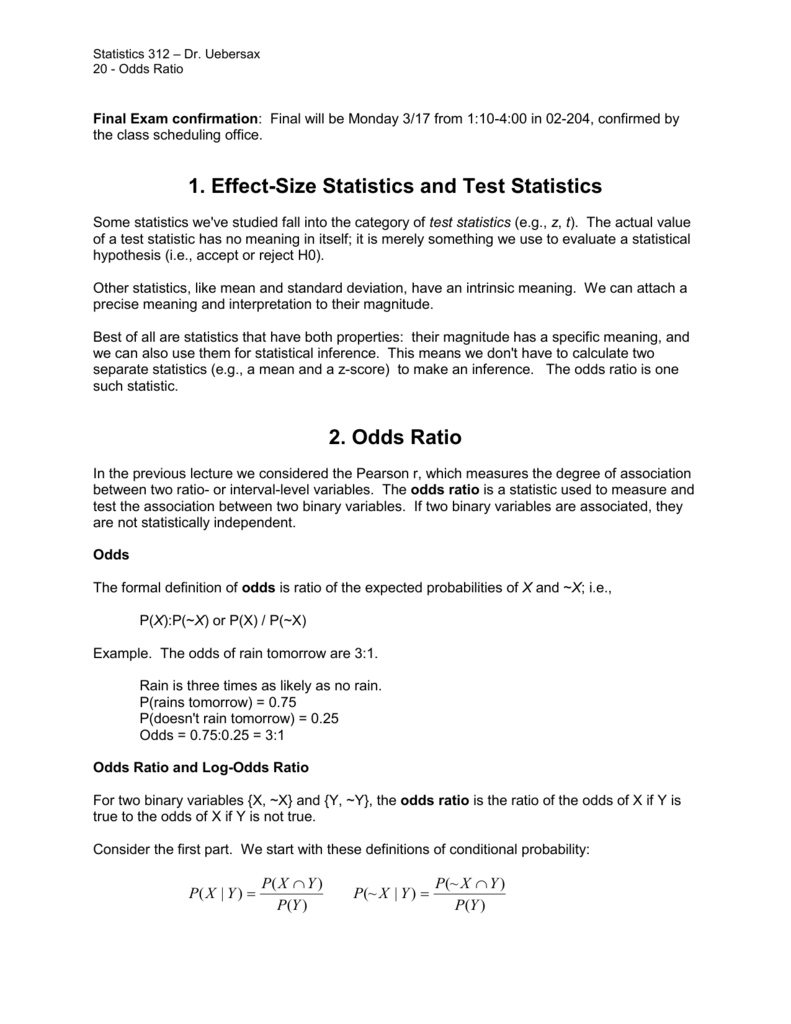



Odds Ratio
Odds and probability is pretty easy!Odds are derived from a probability as follows (Boston University) If the probability of an event is 08 (ie an 80% chance), then the odds are 08 / (1 08) = 08 / 02 = 4, or 4 to 1 The following picture clarifies the difference between probability and odds, using an American roulette wheel with 18 black spaces, 18 red spaces, and 2 green (0 and 00 pockets)In probability theory and statistics, odds and similar ratios may be more natural or more convenient than probabilities In some cases the logodds are used, which is the logit of the probability Most simply, odds are frequently multiplied or divided, and log converts multiplication to addition and division to subtractions This is particularly important in the logistic model, in
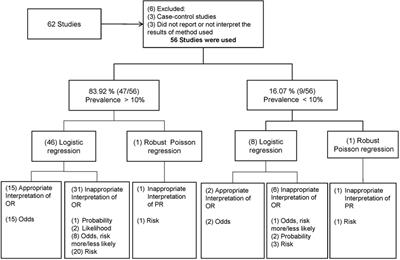



Frontiers Odds Ratio Or Prevalence Ratio An Overview Of Reported Statistical Methods And Appropriateness Of Interpretations In Cross Sectional Studies With Dichotomous Outcomes In Veterinary Medicine Veterinary Science
/hooking-rubber-duck-475470175-e79bca5f3a5946ecb833310b9c3f3b8e.jpg)



How Odds Are Related To Probability
I would add odds and chance in there too ) the difference between probability and likelihood is closely related to the difference between probability and statistics In a sense probability and statistics concern themselves with problems that are opposite or inverse to one another Consider a coin toss (My answer will be similar to Example 1 on Wikipedia) If we knowStatistics — Probability vs Odds 📅 Probability and odds are two basic statistic terms to describe the likeliness that an event will occur They are often used interchangeably in causal conversation or even in published material However, they are not mathematically equivalent because they are looking at likeliness inWhy are relative probability contrasts so often represented using relative odds instead of probability ratios, many researchers do not know statistics well enough to compute the RR from a logistic regression because it doesn't correspond to any of the estimated parameters People do what they know even if it's suboptimal $\endgroup$ – Noah Feb 26 ' at 519 1



1
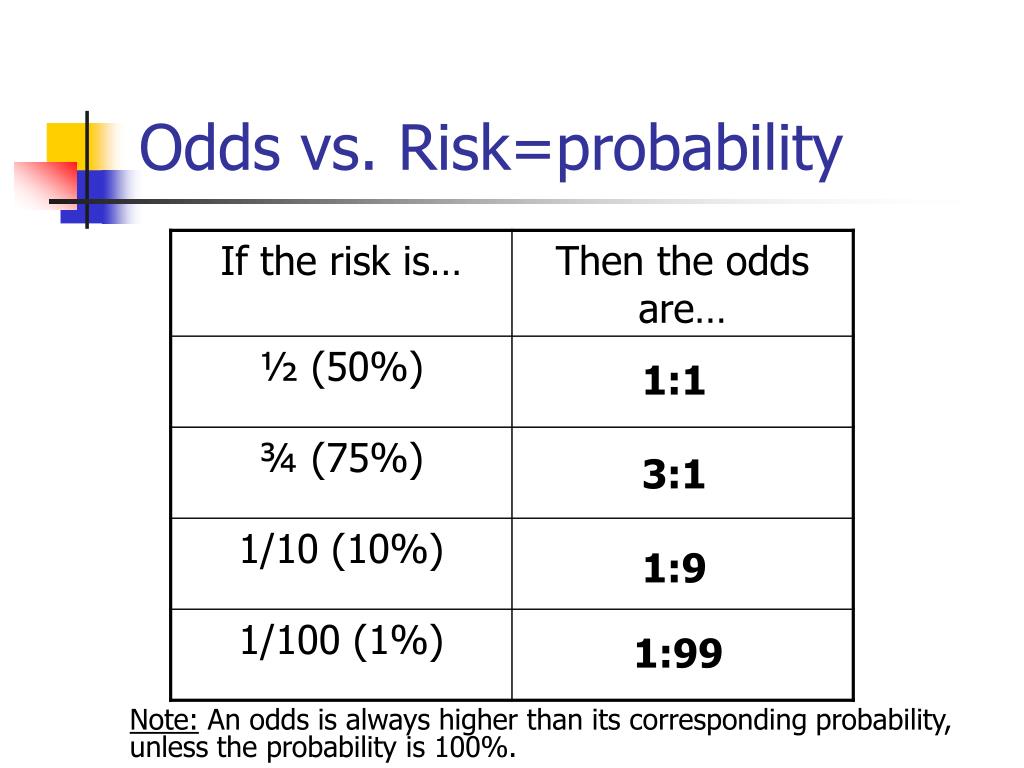



Ppt Conditional Probability Powerpoint Presentation Free Download Id
The differences between odds and probability are discussed in the points given below The term 'odds' is used to describe that if there are any chances of the occurrence of an event or not As against, probability determines, the likelihood of the happening of an event, ie how often the event will take place While odds are expressed in the ratio, the probability isProbability vs Statistics Probability is a measure of the likelihood of an event to occur Since probability is a quantified measure, it has to be developed with the mathematical background Specifically, this mathematical build of the probability is known as the probability theory Statistics is the discipline of collection, organizationOdds vs probability logistic regression Odds vs probability logistic regressionThe survival probability is if Pclass were zero (intercept) However, you cannot just add the probability of, say Pclass == 1 to survival probability of PClass == 0 to get the survival chance of 1st class passengers Instead, consider that the logistic regression can be interpreted as a normal regression as long as




Are You Mixing Up Odds With Probability Drkeithmcnulty Com




Odds Ratios And Marginal Probability By Small Medium And Large Effect Download Scientific Diagram
The probability of an event is written as a fraction This probability tells us how likely an event is to happen Odds are another way of conveying the same information, or another way of saying how likely an event is to happen Instead of comparing the number of favorable outcomes to the total number of outcomes, we compare the number of favorable and unfavorable outcomes⇒ Odds in Favor of an Event = P(Event) P(Event c) Probabilities against and for the event can be used as the antecedent and consequent of the ratio representing the odds against an event in place of unfavorable and favorable choices Odds against an Event Odds against an Event =Odds versus Probability Odds is less intuitive than probability (probably wouldn't say my odds of dying are 1/4) No less legitimate mathematically, just not so easily understood Also




Inverse Probability Weighted Estimation Of The Marginal Odds Ratio Correspondence Regarding The Performance Of Different Propensity Score Methods For Estimating Marginal Odds Ratios By P Austin Statictics In Medicine 07 26 3078 3094




What Is A Probability And What Are Odds Core Im Podcast
Odds vs Probability While odds and probability are related mathematical concepts, the two are also distinctly different The probability of something occurring represents the fraction of times you'd see it happen over several trials If you have a 50% probability of catching the bus, that number represents the idea that you will catch the bus half the time On the other hand, oddsFigure2 Odds as a fraction Odds should NOT be confused with Probabilities Odds are the ratio of something happening to something not happeningIn our scenario above, the odds are 4 to 6 Whereas, Probability is the ratio of something happening to everything that could happenSo in the case of our chess example, probability is 4 to 10 (as there were 10 gamesOdds vs Probability by Girlscout on 13 Share;




Poker Odds For Dummies 1 Beginner S Guide To Poker Odds




Definition And Calculation Of Odds Ratio Relative Risk Stomp On Step1 Study Skills Research Methods Study Notes
The probability that an event will occur is the fraction of times you expect to see that event in many trials Probabilities always range between 0 and 1 The odds are defined as the probability that the event will occur divided by the probability that the event will not occur If the probability of an event occurring is Y, then the probability of the event not occurring is 1YIn statistics, probability refers to the chances of some event happening It is calculated as PROBABILITY P(event) = (# desirable outcomes) / (# possible outcomes) For example, suppose we have four red balls and one green ball in a bag If you close your eyes and randomly select a ball, the probability that you choose a green ball is calculated as P(green) = 1 / 5 = 02 The oddsProbability = # of desirable outcomes/ # of possible outcomes odds = # of desirable outcomes/ # of undesirable outcomes Probability is the measure of the likeliness that an event will occur Probability is quantified as a number between 0 and 1 (where 0 indicates impossibility and 1 indicates certainty) The higher



File Odds As Function Of Probability Svg Wikimedia Commons
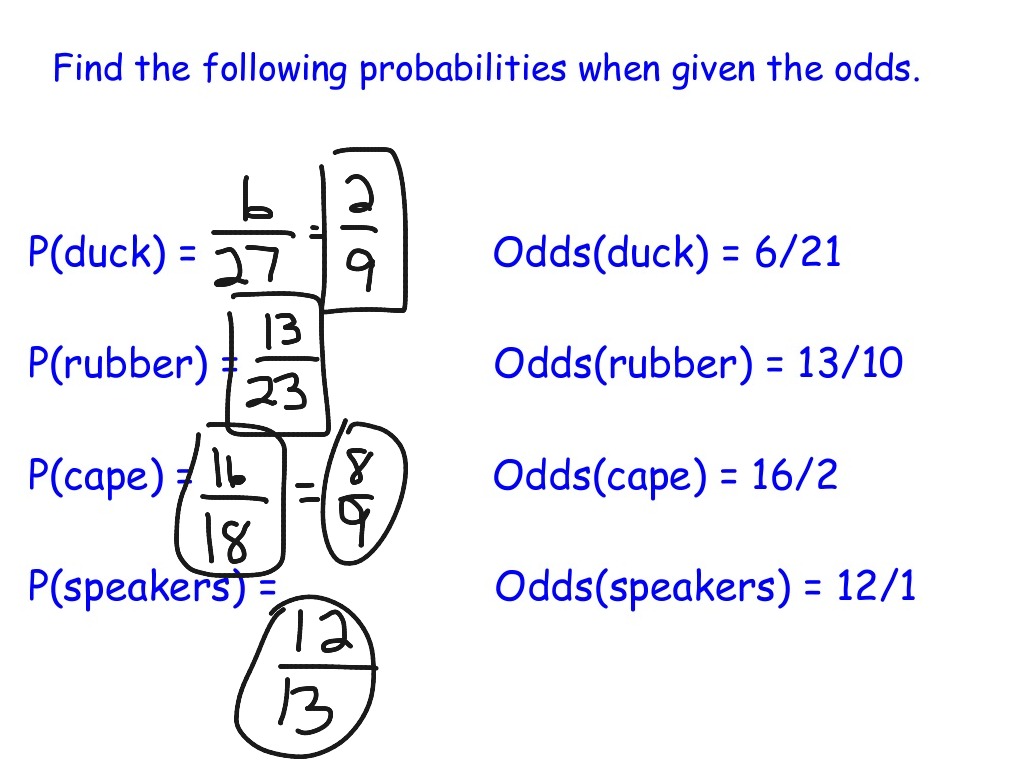



Probability Probability Vs Odds Lesson Math Statistics Showme
Statistics — Probability vs Odds Sean Dolinar Probability and odds are two basic statistic terms to describe the likeliness that an event will occur They are often used interchangeably in causal conversation or even in published material However, they are not mathematically equivalent because they are looking at likeliness in different contexts InJust remember to use a colon instead of a fraction Also, remember that you are comparing the number of ways the outcome can occur to the number of ways the outcome cannot occur (not the total outcomes) Are you ready to try a problem on your own?




Odds Are It S Wrong




What Is The Difference Between Odds And Probability Statistics Youtube




Converting Between Probability And Odds Mathwoes Youtube
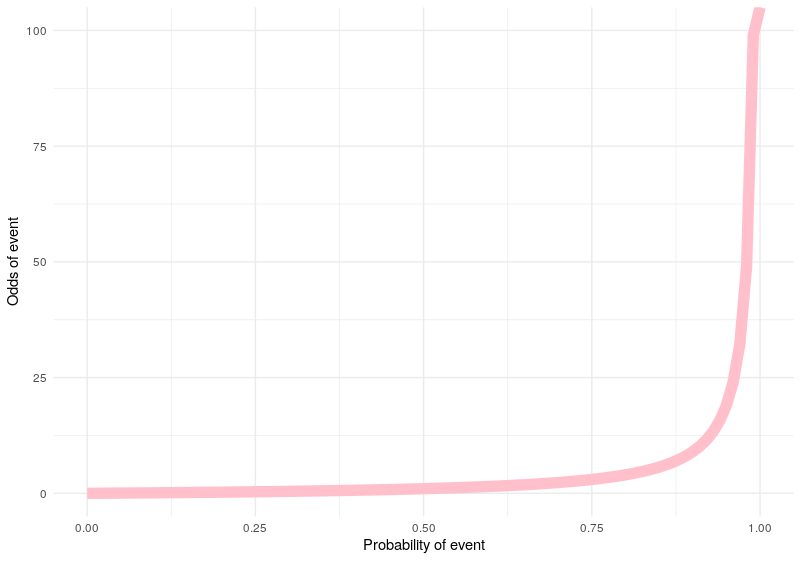



Odds Probability So Many People Think They Are The Same By Keith Mcnulty Sep 21 Towards Data Science
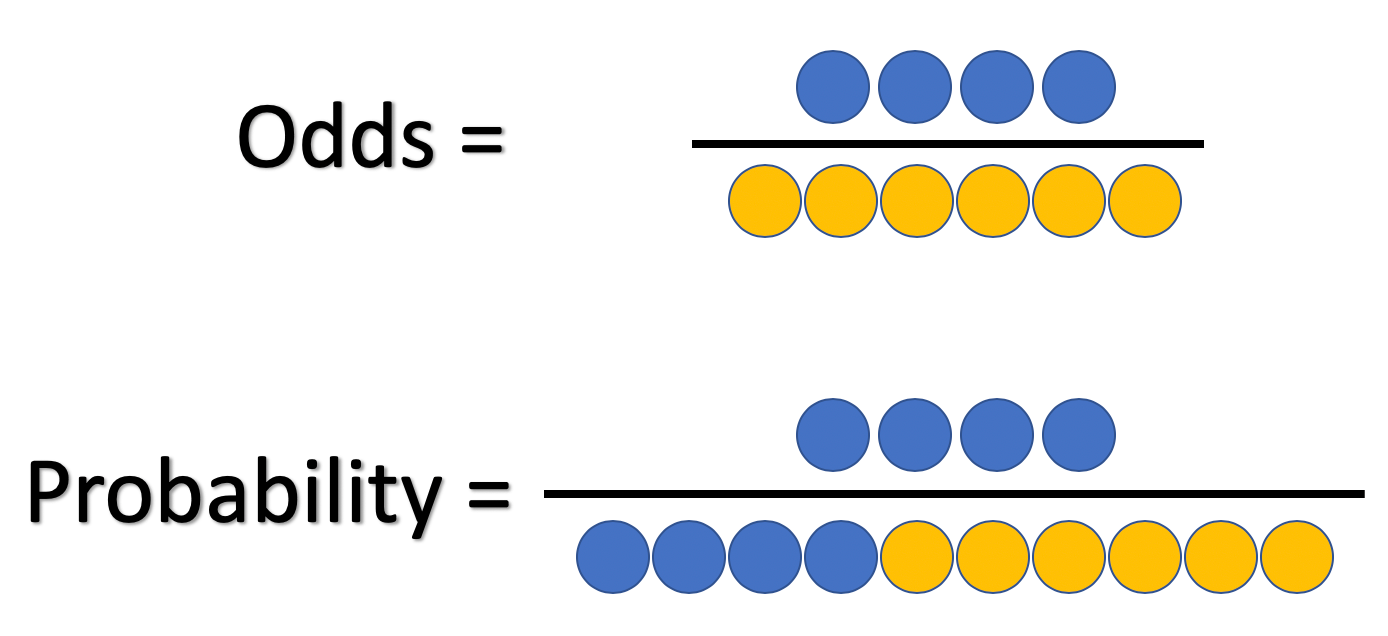



What And Why Of Log Odds What Are Log Odds And Why Are They By Piyush Agarwal Towards Data Science




Example 8 29 Risk Ratios And Odds Ratios R Bloggers




Good Odds Statistics And Probability Workbook Education Com




Probability Vs Odds What S The Difference Learn It And By Z Ai Towards Data Science
:max_bytes(150000):strip_icc()/invest-chart17-01-b6840b5dae61481aa99e8d0c7907de34.png)



Using Common Stock Probability Distribution Methods
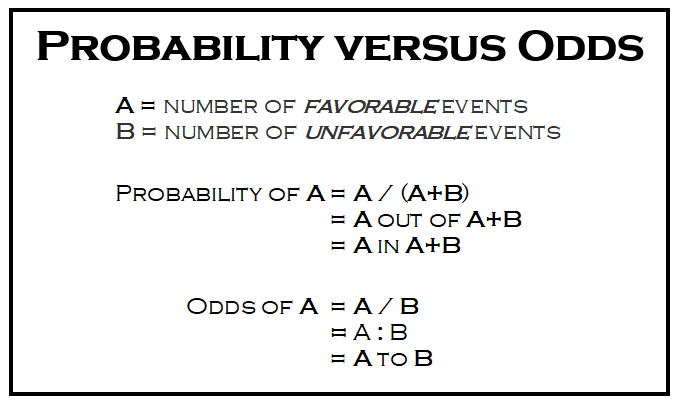



What Are The Odds Stats With Cats Blog




Pdf Confusion Between Odds And Probability A Pandemic




Odds Ratios And Risk Ratios Youtube




What Is A Probability And What Are Odds Core Im Podcast
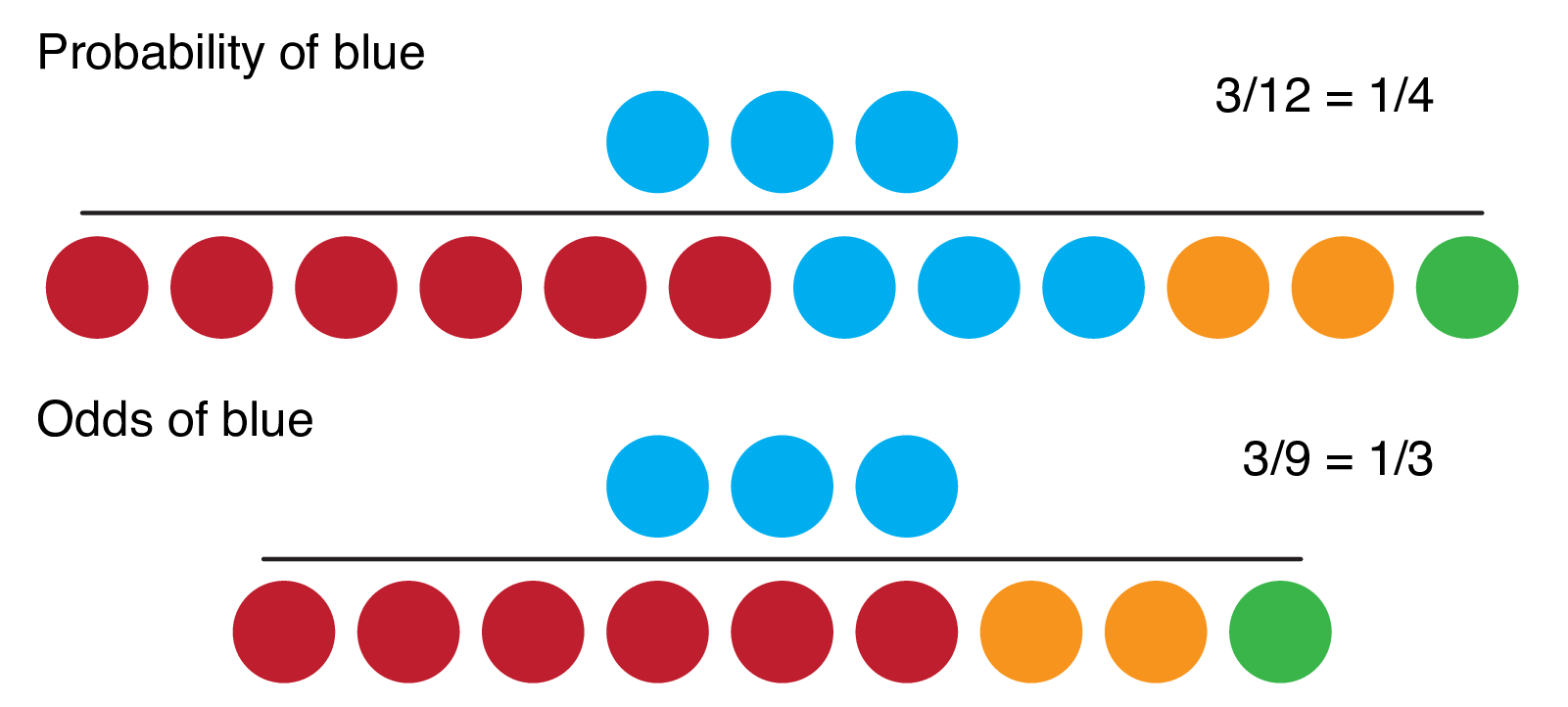



9 2 Binary Logistic Regression R For Health Data Science



Odds Likelihood Ratios Guide To Diagnostic Tests




3 Ways To Calculate Lotto Odds Wikihow




Probability Statistics 24 Of 62 Calculating The Odds And Horse Racing Youtube
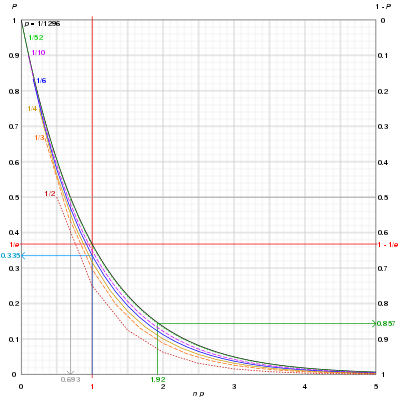



Bernoulli Trial Wikipedia




Statistics 12 Probability Vs Odds Stats Seandolinar Com
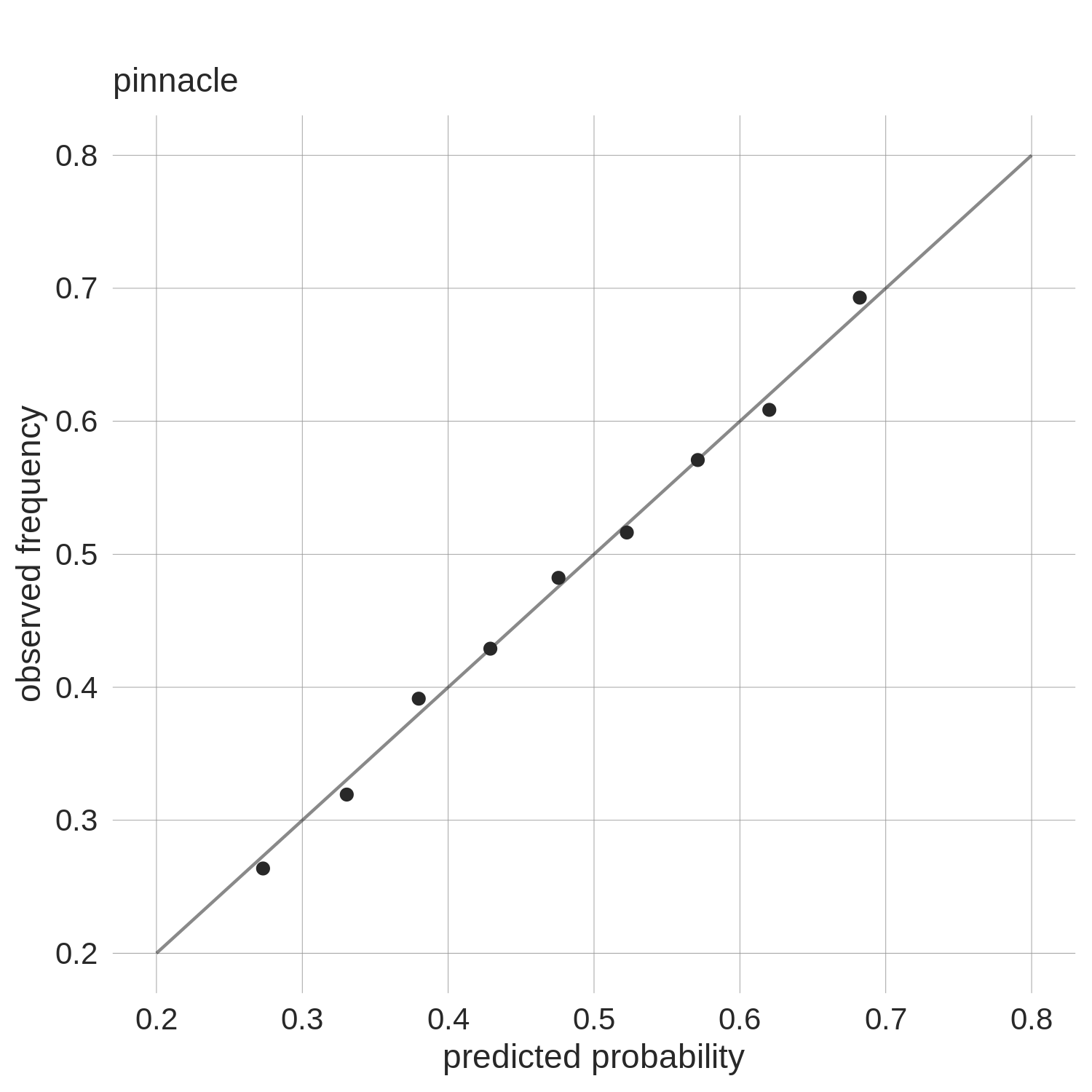



How Sharp Are Bookmakers




Odds Ratios And Marginal Probability By Small Medium And Large Effect Download Scientific Diagram




Poker Probability Wikipedia




Probability And Odds Youtube




Comparing Probability Odds For And Odds Against Youtube




Mathematical Statistics Mathematics Mit Opencourseware
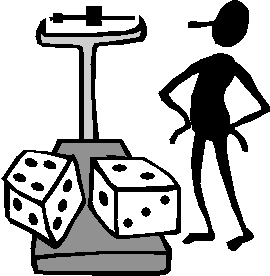



The Difference Between Probability And Odds
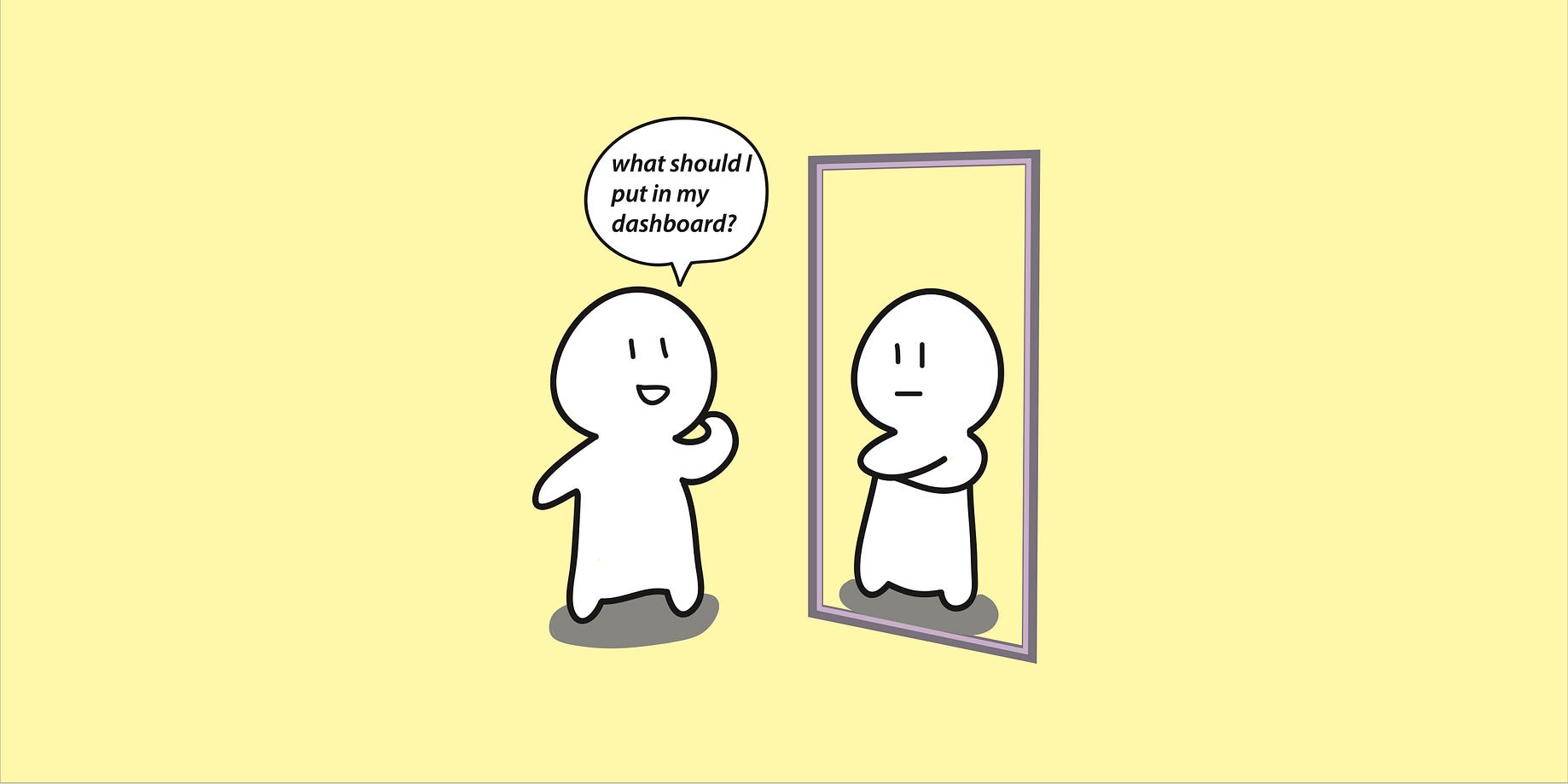



Probability Vs Odds What S The Difference Learn It And By Z Ai Towards Data Science



Indura Da Abreviere Calculator Odds To Probability Tripalamode2nous Com




Against All Odds Inside Statistics Unit 18 Introduction To Probability Alexander Street A Proquest Company



Jstor Org
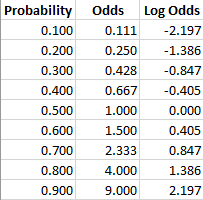



Log Odds Definition And Worked Statistics Problems



2 Odds Ghci Grade 12 Mathematics Of Data Management




Odds Probability So Many People Think They Are The Same By Keith Mcnulty Sep 21 Towards Data Science




Probability Vs Odds In Favour Or Against An Event Examples Youtube
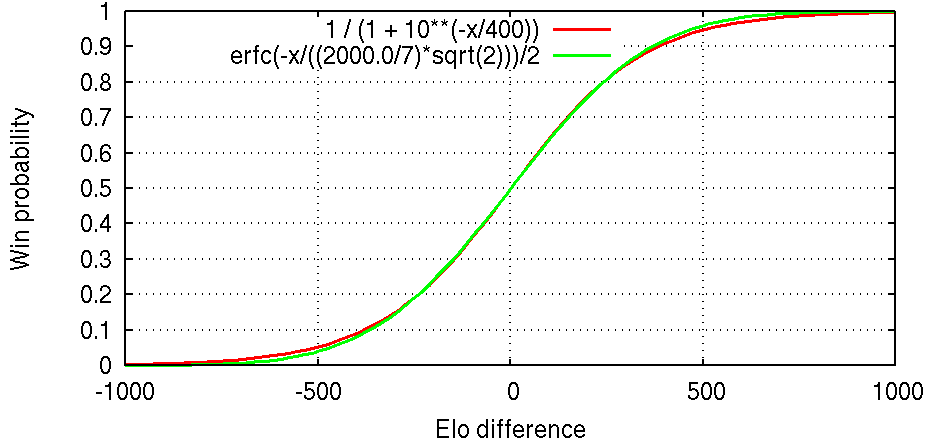



Elo Win Probability Calculator
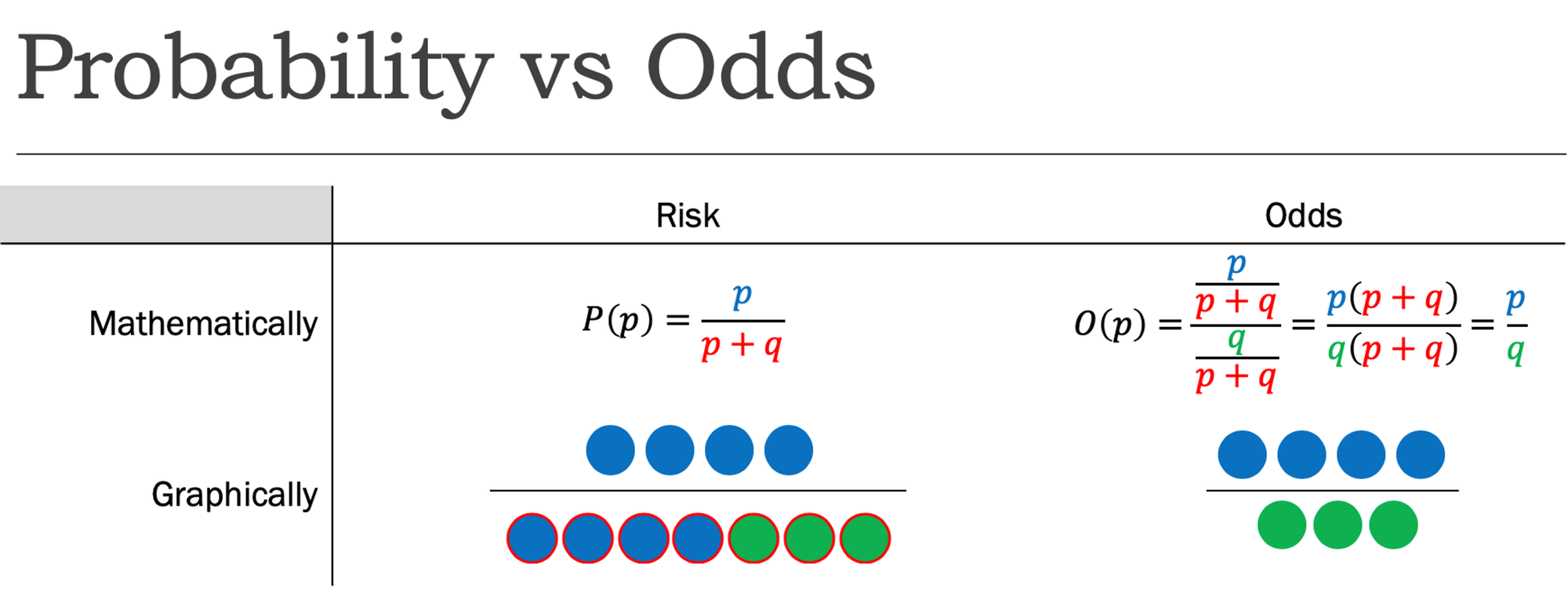



Cureus What S The Risk Differentiating Risk Ratios Odds Ratios And Hazard Ratios
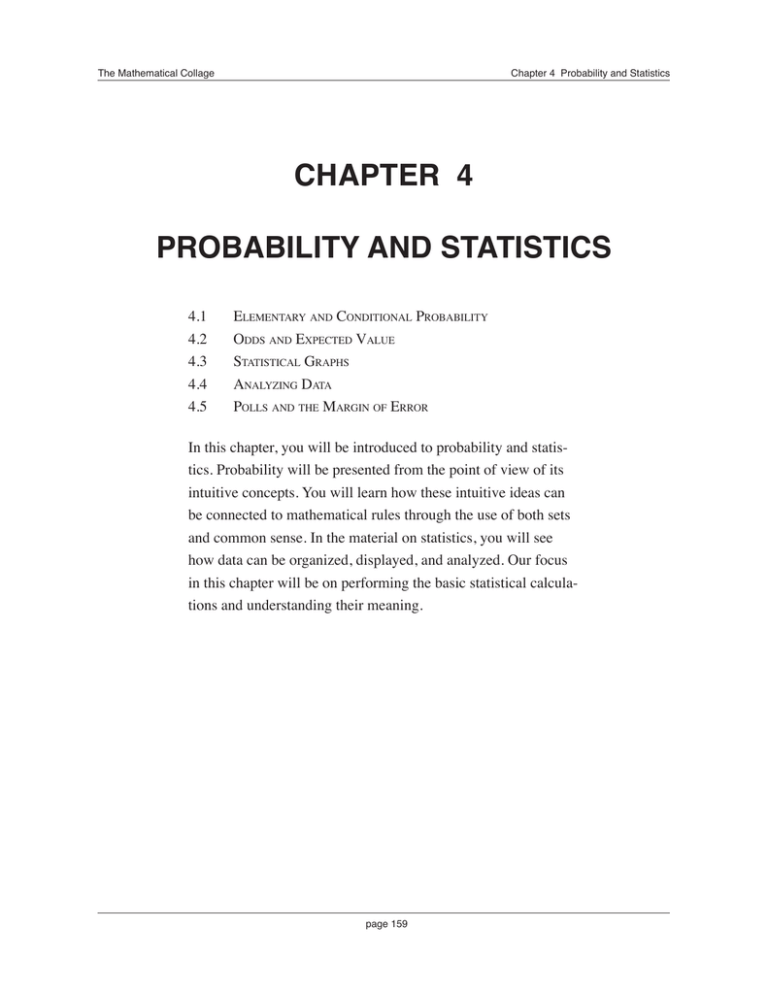



Chapter 4 Probability And Statistics



Odds




Probabilities Of Clinical Or Practical Significance




Logistic Regression 1 From Odds To Probability Dr Yury Zablotski




The Bounded Rationality Of Probability Distortion Pnas




Calculating Probability And Odds How To Find The Odds Of Casino Games
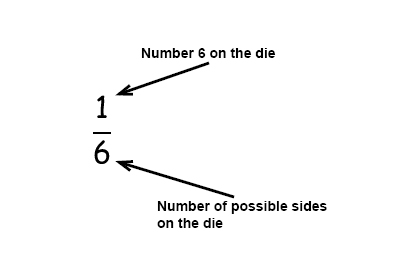



Probability Of Events Pre Algebra Probability And Statistic Mathplanet




Definition And Calculation Of Odds Ratio Relative Risk Stomp On Step1 How To Memorize Things Math Notes Public Health Jobs
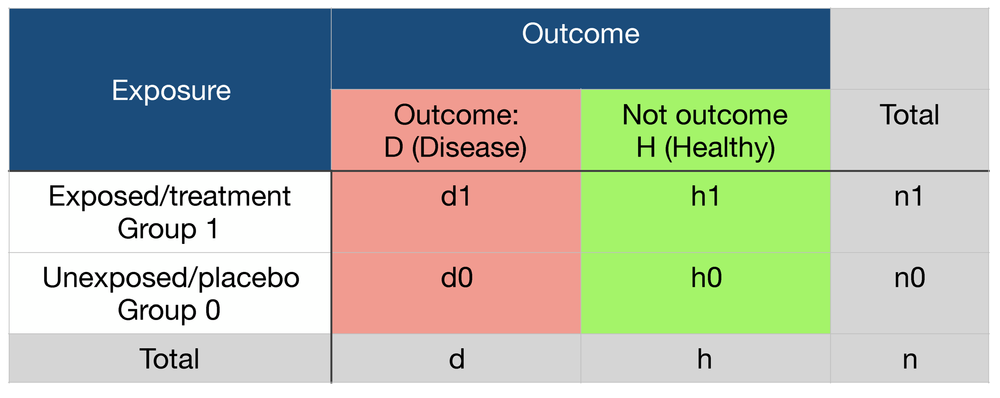



Probability Odds Ratio And Relative Risk Gpraj




Weighing Odds Course Probability Statistics David Willi Paperback Ebay




What Is A Probability And What Are Odds Core Im Podcast



Odds Vs Probability Vs Chance Data Science Central




What Is An Odds Ratio And How Do I Interpret It Critical Appraisal



Odds Vs Risk Vantage Research




Weighing The Odds A Course In Probability And Statistics Amazon Co Uk Williams David Books
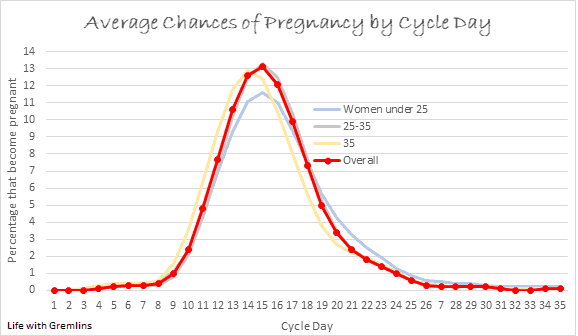



Odds Of Getting Pregnant Pregnancy Probability Statistics
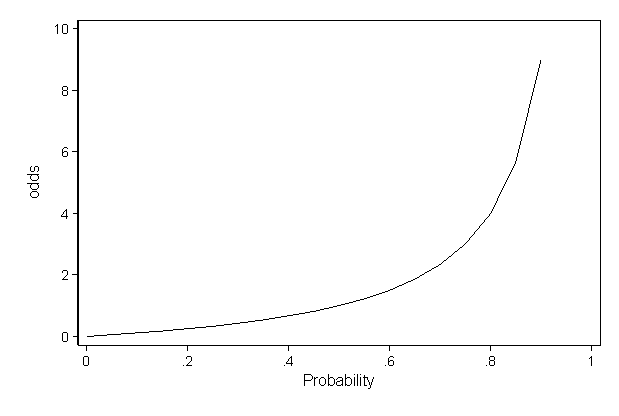



Faq How Do I Interpret Odds Ratios In Logistic Regression



Why Do High Odds Mean A Low Chance Quora




Odds Vs Probability Definition Explanation Calculation Examples And Comparison In One Minute Youtube
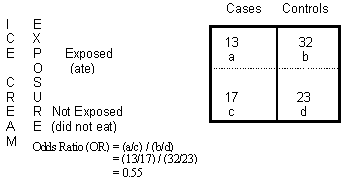



Odds Ratio Calculation And Interpretation Statistics How To




Odds And Log Odds Clearly Explained Youtube



Odds



How To Calculate




How To Calculate Odds 11 Steps With Pictures Wikihow
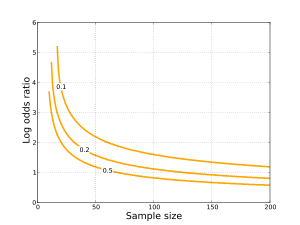



Odds Ratio Wikipedia




How To Calculate Odds 11 Steps With Pictures Wikihow
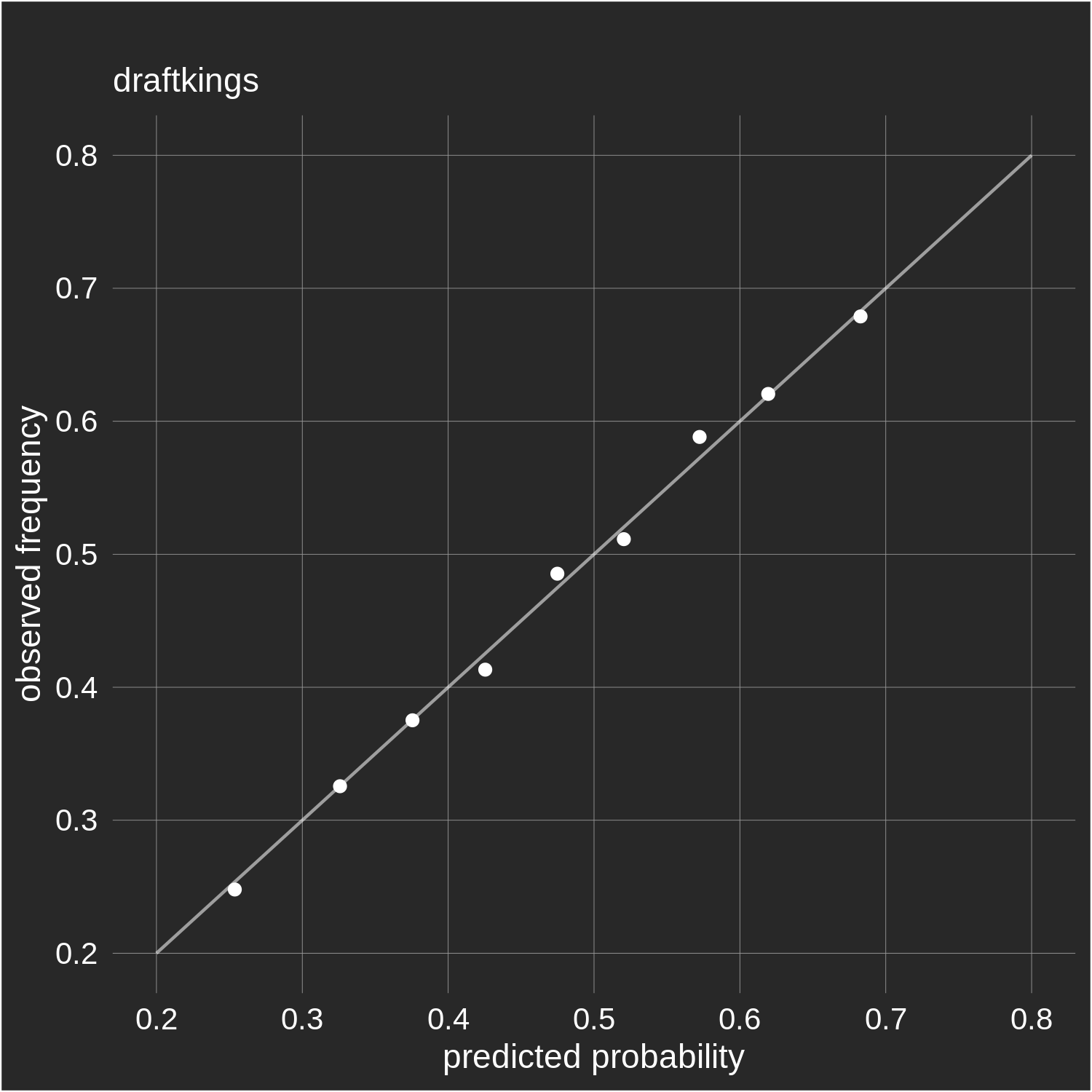



How Sharp Are Bookmakers



Role Playing With Probabilities The Importance Of Distributions Revolutions
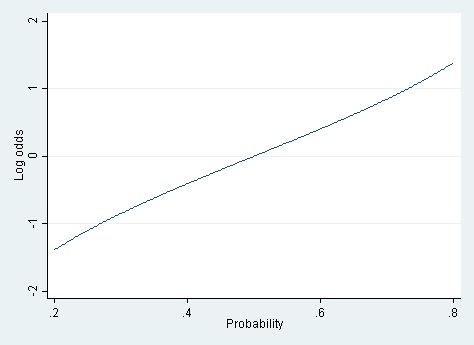



Linear Vs Logistic Probability Models Which Is Better And When Statistical Horizons




Odds Probability The Difference Explained With Examples




What Is An Odds Ratio And How Do I Interpret It Critical Appraisal




How To Calculate Odds 11 Steps With Pictures Wikihow




Probability Odds And Random Chance Gambling Gaming Technology Use




Lecture 7 Odds Vs Probability Youtube




Probability Vs Odds What S The Difference Learn It And By Z Ai Towards Data Science
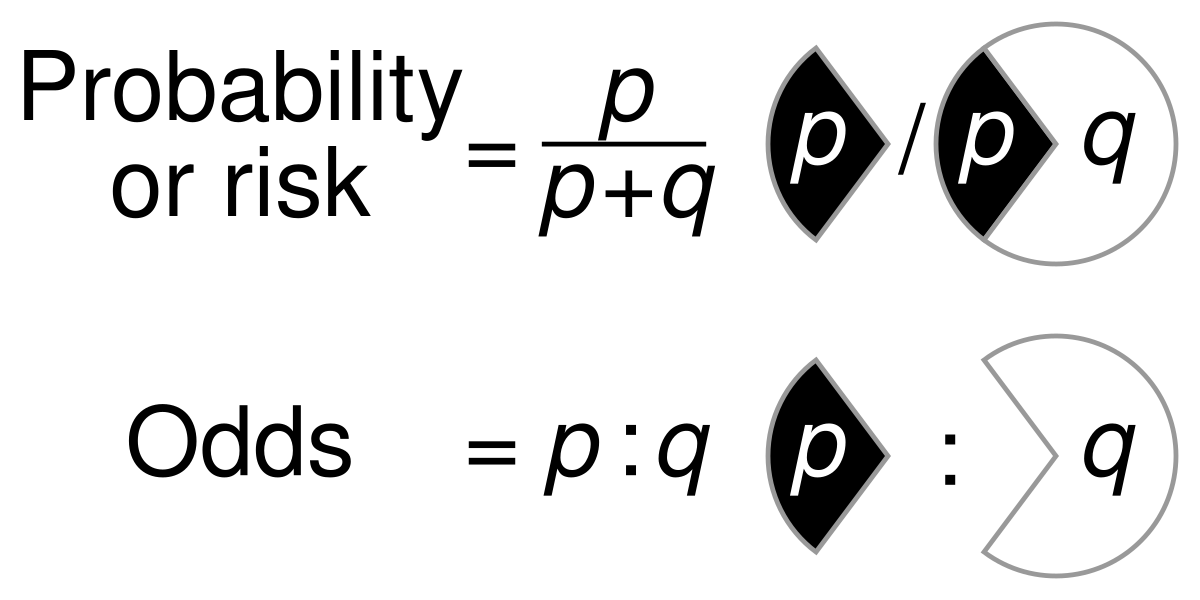



File Probability Vs Odds Svg Wikimedia Commons




Odds Are Not The Same As Probabilities Will Townes
:max_bytes(150000):strip_icc()/dotdash_Final_The_Math_Behind_Betting_Odds_and_Gambling_Nov_2020-01-735accb453c8424b9e063c2c14e4edf4.jpg)



The Math Behind Betting Odds Gambling
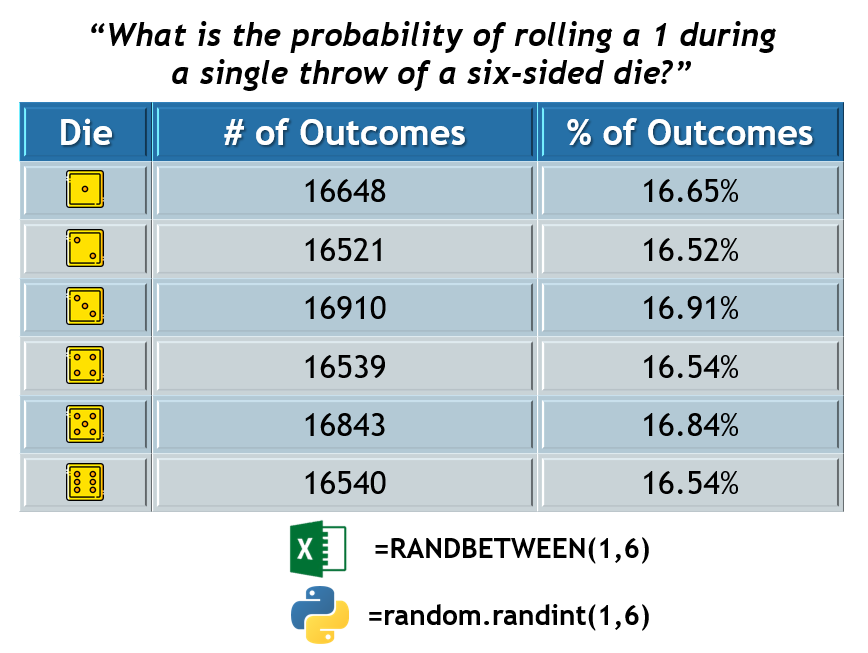



An Intro To Odds Notation A Mathematical And Theoretical Look At By Lloyd Danzig Medium




Odds Ratios And Log Odds Ratios Clearly Explained Youtube




What Are The Odds The Annals Of Thoracic Surgery




Odds Ratio Wikipedia
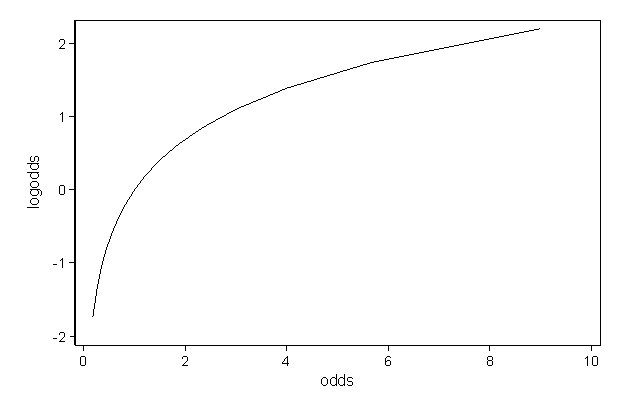



Faq How Do I Interpret Odds Ratios In Logistic Regression



Odds Vs Probability Vs Chance Data Science Central



0 件のコメント:
コメントを投稿